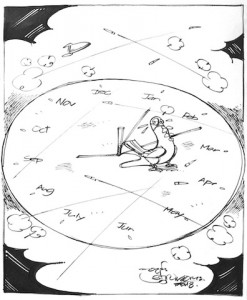The internal conflict in Burma is the world’s longest running civil war, with ethnic armed groups fighting for some form of autonomy, since 1948.
Since a new quasi-civilian government came to power in 2011 almost all armed groups have reached individual ceasefire agreements with the government, but some fighting still continues.
Peace talks are ongoing but have been unable to reach a solution that would lead to a nationwide ceasefire.
On the panel this week, Doi Bu, MP of the Unity and Democracy Party Kachin; Dr. Salai Lian Hmung Sakhong, of the National Cease Fire Coordination Team (NCCT); Myanmar Peace Centre representative Hla Maung Shwe; and Sithu Aung Myint, a well known journalist who has fought in the civil conflict.
Panellists argued about whether there should be more transparency in the peace process. Doi Bu insisted that key issues are hidden from parliament.
“The process should have transparency,” she said. “Until now there are some things that are not even known by us, the parliamentarians.”
However, Hla Maung Shwe objected, explaining that all decisions are shared publicly.

“When the official discussion starts we invite the media. And after the discussion we give them the statements of both sides and make a press conference,” he said.
Salai Lian Hmung Sakhong agreed, and insisted that the ethnic groups do not hide anything. However, he conceded that some military information is not for sharing.
“From our ethnic side there is nothing to hide. Concerned with the military it is not suitable for us to show everything,” he said.
Sakhong argued that the peace process is still at a military stage, and is not yet ready for discussion in a political arena. However Doi Bu thought there should be more involvement from parliament, and a greater link between the ethnic representatives in parliament and ethic groups.
She said she wants to be allowed to take part in ethnic conferences and discussions about the nationwide ceasefire, such as the Laiza summit held in Kachin State in October last year.
“As a Kachin I wanted to go to Laiza to get information to share in the parliament but they don’t call us and I am upset about that. We are not connected to each other,” she said.
However, Sithu Aung Myint said that there are members of parliament involved in the process already.
“This is a problem of the parliament,” he said. “In the peace committee there are representatives from parliament at the central level and their responsibility is to share to the parliamentarians. As far as I know there is no sharing so that’s why parliamentarians don’t know. It’s a problem on this side. It’s not true that the other side is hiding.”
However, there are still obstacles for those who want to get involved in the process without official permission. Laws such as the Illegal Association Act prevent association with armed groups. Although the government themselves are now meeting with these ethnic armies, other citizens still risk arrest for involvement with these groups.
But Doi Bu says this won’t put her off.
“So now they are talking even with the government so if they talk with us, and if they want to arrest us, let them arrest us,” she said.
Audience member Khon Ja from the Kachin Peace Network tells the panellists there should be less discussion about the peace talks and more focus on ending the conflict in reality.
[related]
“Whether they sign the ceasefire or not is not important. What is important is to actually stop the fighting,” she said.
Hla Maung Shwe agreed that the peace process is still fragile and a return to conflict is still a possibility if trust breaks down.
“To speak frankly, both sides of the armed forces are holding the weapons so even though we don’t say it out loud if the peace is dismissed both sides will fight. Both sides are preparing for this but we don’t want this to happen. But I want to highlight that it seems like trust is the highest,” he said.
However, Salai Lian Hmung Sakhong insisted that a return to conflict is the last thing ethnic armies want.
“From the ethnic side, nobody wants to fight, nobody wants to hold the weapons. We want to create our life peacefully. Secondly, I want everyone to understand that there is no ethnic armed organisation that wants to solve these political problems by means of armed rebellion. So, the ones who want to end this armed revolution, to end this civil war most, is us,” he said.
The panel seemed to agree that the nationwide ceasefire should be signed before the next elections in 2015 and that the political dialogue should start as soon as possible afterwards.
You can join the debate and watch the full programme in Burmese at dvbdebate.com
Or share your views with us by commenting on our website at dvb.no


